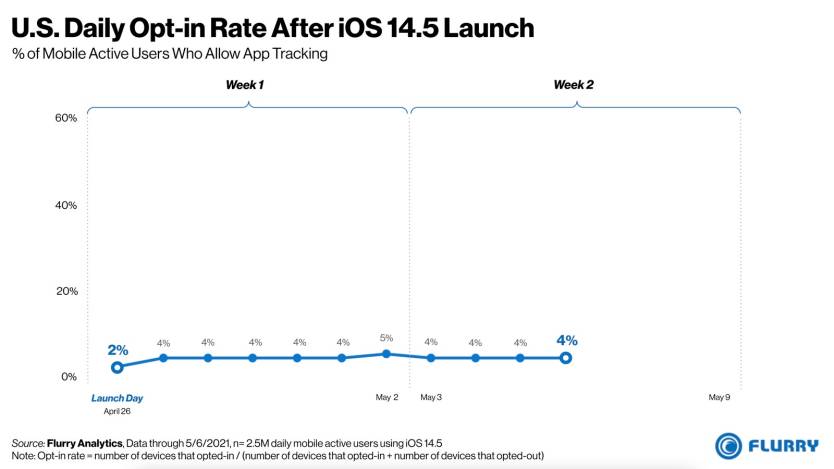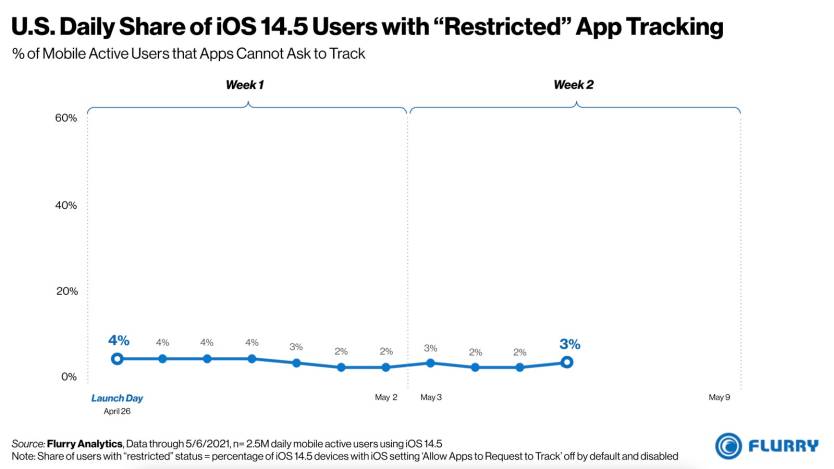Apple rolled out iOS 14.5 a few weeks ago, which brings over a highly-anticipated privacy feature. App Tracking Transparency (ATT) forces developers to ask for consent before tracking users across iPhone and iPad apps and services. It’s the first time apps that collect data had to ask for permission to track users, explaining why Facebook isn’t happy with the change. Facebook protested the privacy features in iOS 14 via an ad campaign meant to convince people that Apple is the bad guy and that personalized ads are necessary for small businesses. Facebook went as far as to threaten that Facebook and Instagram might no longer be free if users block tracking. Separately, the company informed advertisers that ad campaigns would see significant changes following the iOS 14.5 rollout. Losing the inability to track users also prevents Facebook from offering advertisers stats about ad performance. Facebook also expects Apple’s privacy changes to impact its bottom line.
Estimates before iOS 14.5 came out had suggested that many people will block tracking if given the opportunity. Now that ATT is out, a brand new analysis shows that the vast majority of iPhone users choose to leave app tracking disabled on iPhone, proving the anti-tracking feature is a devastating blow to Facebook and other developers who make money from tracking customers and hoarding their data.
If iPhone users leave the new Allow Apps to Request to Track privacy feature disabled, all iPhone and iPad apps will be told not to track users. It’s as if you’d permanently block tracking when shown a prompt. Disabling the feature makes the prompts go away, and apps aren’t allowed to collect data.
Flurry Analytics has been monitoring anti-tracking behavior since the feature rolled out in iOS 14.5. The company’s analytics software is used in more than one million mobile apps, which lets it provide analytics across 2 billion devices. Flurry looked at the daily opt-in rate and the share of users that apps couldn’t ask to track (when Allow Apps to Request to Track is disabled).

Flurry found that only 11-12% of international mobile users it tracks allowed app tracking after iOS 14.5 launched. The opt-in rate is even lower for the US, at 2-4%.
Flurry also shows that an average of 4-5% of international iOS 14.5 users have restricted app tracking on iPhone and iPad since iOS 14.5 rolled out. The percentage averages at 2-4% for iPhone users.
Flurry’s graphs seem to indicate that the sentiment towards sharing user data with apps is similar nearly two weeks after iOS 14.5 rolled out. The figures for opt-in have been hovering around the same percentages, and the same goes for the percentage of iOS users who disabled the app tracking prompt.

What the data doesn’t show is the percentage of iOS 14.5 upgrades from day to day. iPhone and iPad owners usually upgrade to the latest iOS versions available soon after launch, with Apple often announcing high install rates for its latest software releases. It’s likely the majority of iOS users will get on iOS 14.5 and iPadOS 14.5 in the future.








